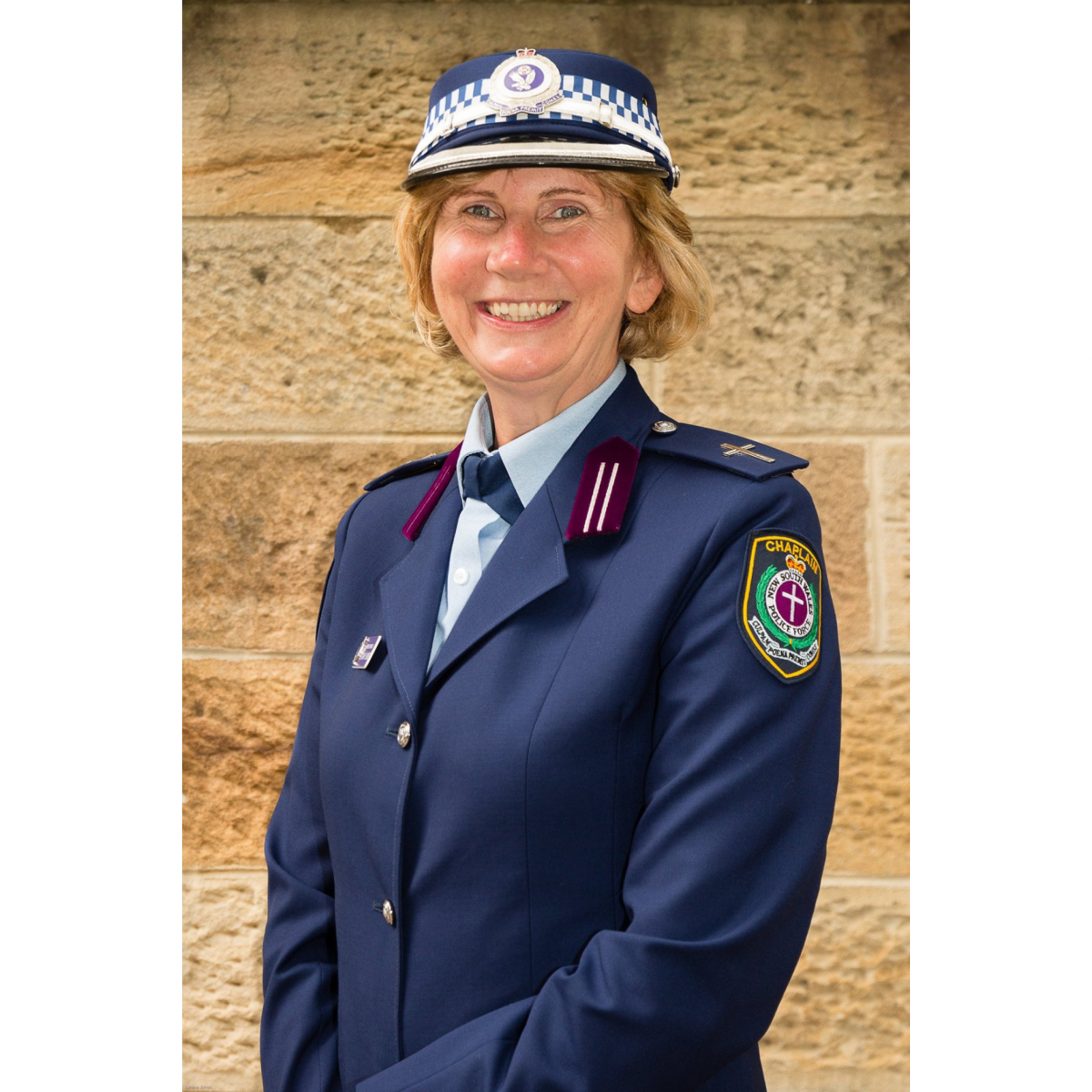Chaplain
Job Description
A Chaplain is a spiritual representative who provides counseling and religious and pastoral care to people in different locations and settings often working outside of a traditional church setting. As ordained clergy members, Chaplains offer their services and support to people who are not able to attend a religious service, due to their location or situation. Chaplains provide emotional and spiritual support to people of all religions and beliefs. A Chaplain may be of any faith and usually offers nondenominational services to accommodate all.
NSW Police Chaplains provide a number of services, including:
- Provide spiritual guidance and counselling support to individuals regarding personal and moral problems relating to work, marriage, relationships and family
- Responding to critical and traumatic events
- Support Police Officers at emergency situations and at the scenes of disasters
- Hospital calls and house calls in cases of illness
- Perform religious ceremonies, services and rites such as marriages and baptisms
- Perform or attend police funerals and assisting families in time of bereavement
- Involvement in police training
- Assignment to various police functions to offer prayers, invocations, benedictions and dedications
From a Chaplain you should expect:
- Acceptance – Acceptance of you and your family in a non judgemental manner, no matter your faith or belief system
- Availability – Availability whenever the need arises. Chaplains are available 24 hours. No one is to be denied access to Chaplaincy services
- Confidentiality – Privacy and confidentiality is guaranteed with a Chaplain about almost any issue. (Whilst we always maintain professional confidentiality, Chaplains are still bound by relevant Commonwealth and State legislation when dealing with criminal offences or evidence of same.)
Qualifications
It's important to know what the role of Chaplain entails and what qualifications, training, skills and attributes you require to pursue this career path.
Skills
- Ability to display empathy
- Capacity to motivate and inspire people
- Display a strong sense of spirituality
- Ability to offer support and guidance to people from all religious backgrounds
- Consider volunteering targeting your area or beliefs of interest - For example, if you want to work in a hospital, supplement your undergraduate education by volunteering at your local hospital.
Qualifications
- Bachelor Degree, with a focus or major in theology and counseling
- Masters Degree or a Ph.D.— and a relatable agree to the setting you wish to pursue (such as hospital, NSW Police, prisons or Army)
- Biblical counseling or pastoral care to improve your knowledge in this this field
Training
- If your college, training sector, university or seminary offers it, consider completion of specialised chaplain training
- Determine whether or not you need CPE training. CPE (Continuing Professional Education), is a term referring to the points professionals receive for participating in specialised training in IT and other fields. CPE credits are based on hours of study and count toward certification programs that enable professionals to maintain or update their credentials.
Certifications
- In some circumstances, your employer may require you to get ordained and endorsed by your religious organisation. Determine whether or not this applies to you and if so, what steps you need to undertake to complete this process. Some religious organisations or groups also have qualifications they need you to meet prior to endorsing you as a Chaplain.
- Depending on your employer, you may need to earn your certification from an organisation recognised by the Association of Professional Chaplains. National Chaplain organisations typically have different criteria and standards for offering certification to prospective Chaplains. Find the right one for you based on your faith and career goals. Typically, you need to complete a written test to earn your certification. You may also need to meet other requirements such as getting ordained as a Minister and obtaining a graduate degree in theology.
Attributes
- Assertive
- Calm
- Civility
- Common Sense
- Communicator
- Emotional Intelligence
- Empathy
- Ethical
- Honest
- Inspirational
- Interpersonal
- Maturity
- Motivated
- Open-minded
- Spiritual
- Resilient
- Responsible
Key Skills
- Analytical Thinking
- Communicator
- Education
- Ethical
- Inspirational
- Interpersonal
- Public Speaking
- Spiritual
- Resilient
- Responsible
- Teaching
Future Prospects
Some Chaplains may choose to remain in the same environment for their entire career. Others, however, may choose to pursue other career options. The following are available careers options:
Chaplain Coordinator: Coordinates the programs and services available, while also leading on-staff chaplains.
Educator: Teaching aspiring Chaplains the skills, knowledge and attributes required for the role.
Religious Leader: Some Chaplains may choose to become a Religious Leader for their preferred religion, such as a Priest, Minister or Pastor.
Nonprofit Work: Some Chaplains may choose to transfer their counseling services to a nonprofit work environment.
